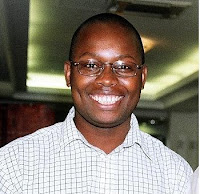Should we borrow money for consumption?
Microfinance is the provision of financial services to the low income categories of people - generally the poor. These services include micro-loans, savings, remittances etc. One of the main successes of microfinance is the ability to provide the poor with these services without attaching the traditional strings that you find in the formal financial sector - the banks. In this case, as has been shown in by the Grameen Bank in Bangladesh, Bancosol in Bolivia and Self-Help Groups in India, microfinance has enabled the poor to access flexible financial services such as small loans to meet not only their productive needs such as capital for small businesses but also their consumption needs such as paying for dowries, buying medicines, food and clothing. In line with Maslow's hierarchy of needs, if microfinance insists on providing loans only for productive purposes, they would re-enforce the traditional view of serving the non-poor. This is so because the non-poor in most instances have already met their basic needs - food, shelter, and can thus borrow for productive purposes only. On the other hand if you have to enable the poor to move out of the poverty trap, then they should have access and be allowed to borrow even for consumptive purposes. There are seasonal trends in terms of financial positions of the poor - at some point of plenty, for example at crop harvest time, they can save up and can afford to meet their consumptive needs from these savings. However, at other times, such as during the planting season they are short of income and thus may need support, which means allowing and encouraging the poor to borrow for consumptive needs in addition to productive needs.
The issue of flexibility and defying traditional financial thinking is what has led to "the microfinance revolution" where it is an old school of thought to "discourage people from borrowing for consumptive purposes". To reduce poverty we have to meet both the consumptive and productive needs of people. It is not foolish to borrow £500 in which £150 is used to buy clothing and food while £350 is invested in a micro-enterprise.
Kennedy Lweya, PhD


0 Comments:
Post a Comment
<< Home